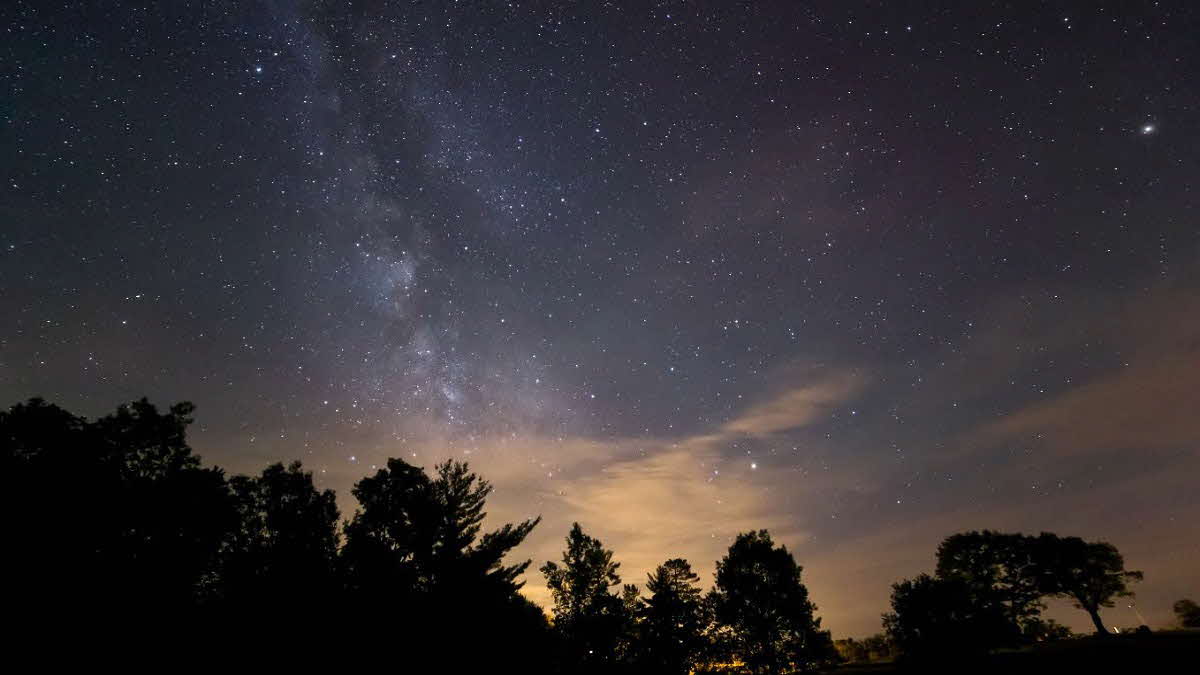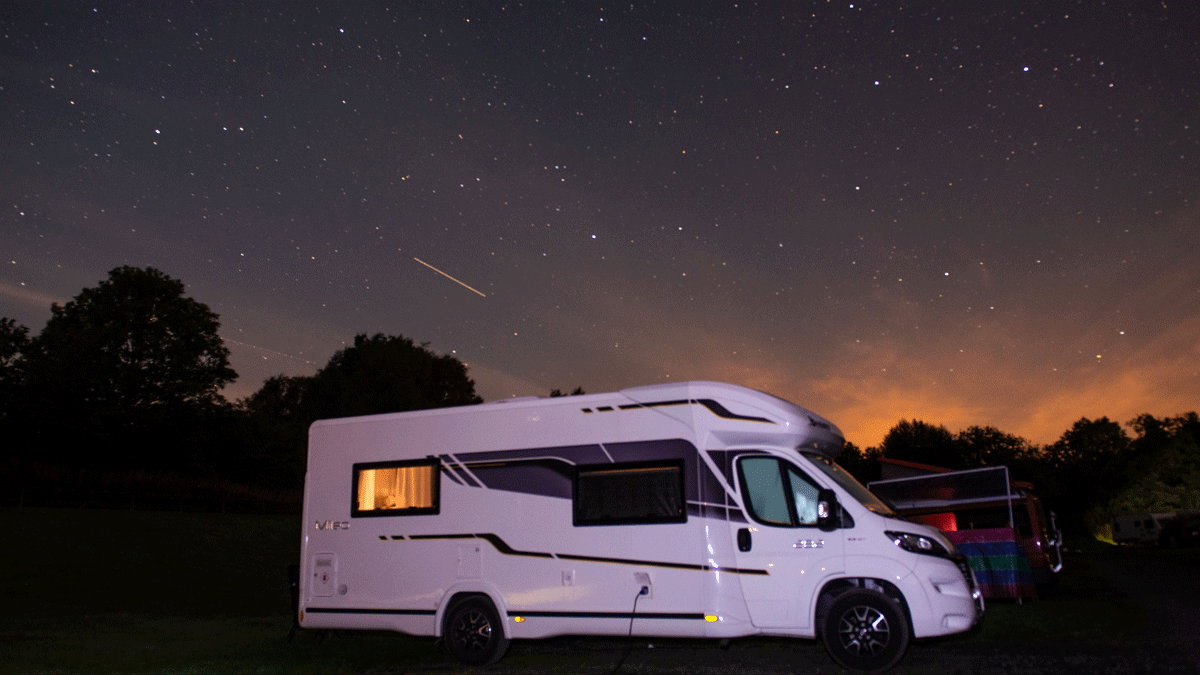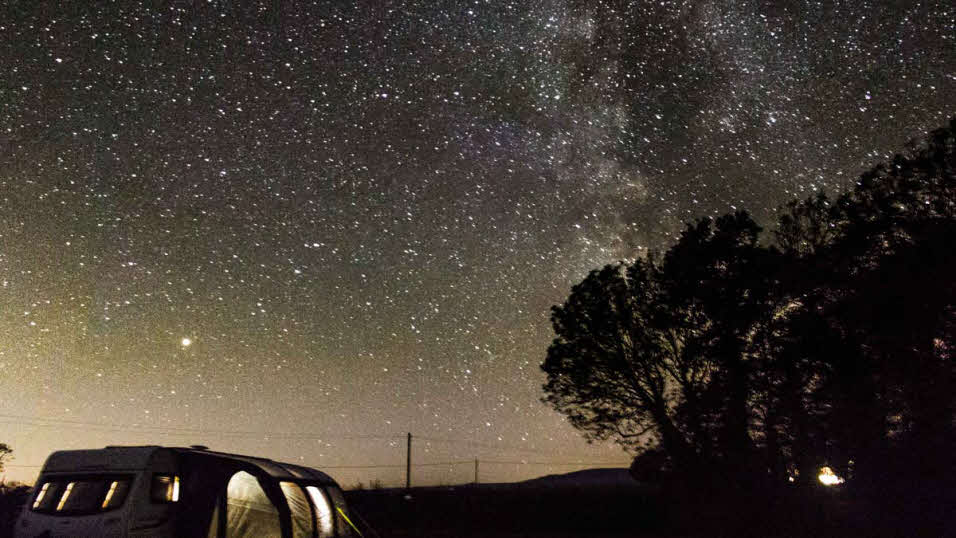Stargazing in the UK
Discover the captivating world of stargazing and what campsites are best for seeking out constellations.

If you've ever wanted to step away from every day life and take some time to reconnect with the power of nature, than a stargazing holiday could be perfect for you! With campsites near to a dark sky sites, you'll be able to sit back and marvel at the scale of the universe. Take "sleeping under the stars" to a whole new level, whether you're a seasoned astronomer or a curious novice.
Discover the captivating world of stargazing and seek out the constellations below:
Orion
The Orion constellation, with its distinctive pattern of stars, has fascinated and inspired humanity for centuries. It's named after the mighty hunter of Greek mythology and is located on the celestrial equator. Orion is visible from both the Northern and Southern Hemispheres, making it one of the most recognisable constellations in the night sky!
Cassiopeia
The Cassiopeia constellation, named after the mythical queen of Aethiopia, is a prominent and easily recognisable feature of the night sky. Resembling a "W" or "M" shape depending on its position throughout the year, it's situated in the Northern Hemisphere and is circumpolar which means it never dips below the horizon.
Ursa Major
Ursa Major, the Great Bear constellaytion, has fascinated and guided humanity for centuries. It's one of the most prominent and recognisable constellations in the night sky, it's iconic shape forms a celestial bear with the stars of the Big Dipper serving as its defining feature. It's seen as a symbol of strength and endurance in many cultues and has guided travellers and inspired stargazers throughout history.

Discover the joy of camping beneath a velvety blanket of stars and the appeal of staying at a campsite perfectly positioned for celestial observation.
What are Dark Sky Discovery sites?
A dark sky site means you're far enough away from light pollution meaning the sky is extra dark at night and it makes it possible to see over 1000 stars without the need for a telescope. We are very fortunate here in the UK with so many fantastic areas for stargazing and in some of these places, it’s even possible to see our Milky Way.
Where to stay?
- Brighton Club Campsite
- Coniston Park Coppice Club Campsite
- Moreton-in-Marsh Club Campsite
- Troutbeck Head Club Campsite
Don't forget...
Dark Sky Sites are in the middle of nowhere, so it's advisable to pack an extra torch for walking around the campsite after dark.

International Dark Sky Week: 15 - 22 April
This is a time to remind ourselves, and get into the habit, of switching off the lights in the evening and taking time to enjoy and marvel at the beauty and grandeur of the night sky.
During the night time we can look at and enjoy the universe’s beauty and grandeur. Sadly, due to light pollution, we’re only able to see a small number of stars, not the universe in its full splendour.
International Dark Sky Week is an ongoing campaign that aims to reduce the levels of light pollution and promote better quality, community-friendly lighting. This awareness week recognises the impact of poor lighting and increasing levels of light pollution on health, the natural world and rising carbon emissions.
Global levels of light pollution are increasing by 10 per cent every year which is leading to a doubling of brightness of the night sky every eight years.
Sustainability is hugely important to us and to help combat this issue, earlier in the year we initiated a trial to switch-off pitch bollard lighting in order to reduce energy usage. It began in January at Wyatts Covert and was extended in March to:
- Crossways Club Campsite
- New Forest Club Campsite
- Coniston Park Coppice Club Campsite
- York Beechwood Grange Club Campsite
- Cambridge Cherry Hinton Club Campsite
- Fairlight Wood Club Campsite
- Wyatts Covert Club Campsite
- Ferry Meadows Club Campsite
- Blackshaw Moor Club Campsite
- Brecon Beacons Club Campsite
- Moorhampton Club Campsite
- Godrevy Park Club Campsite
- Hurn Lane Club Campsite
- Ayr Craigie Gardens Club Campsite
- Silverbank Club Campsite
There are numerous benefits to reducing unnecessary light pollution from our campsites, including benefits for local wildlife, energy use reduction and cost savings. Member feedback to this trial has been positive and we will be extending this out across all appropriate Club campsites during International Dark Skies Week between the 15 and 22 April.
There are trillions of stars out there, billions in our Milky Way alone, but we are only able to view a few thousand of them during the night, light pollution is the major culprit behind this.
If we all make small changes, they add together to make a big difference. Join with us and switch off lights whenever and wherever you can and take the time to stargaze and enjoy nature in all its magnificence.

